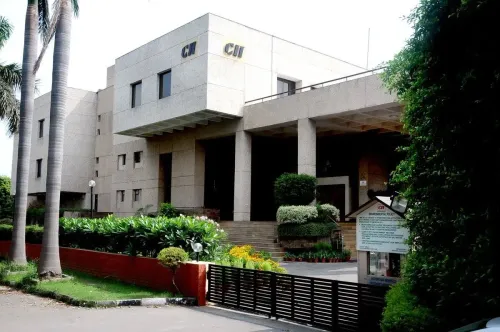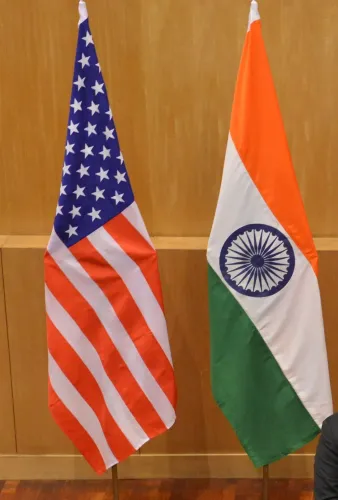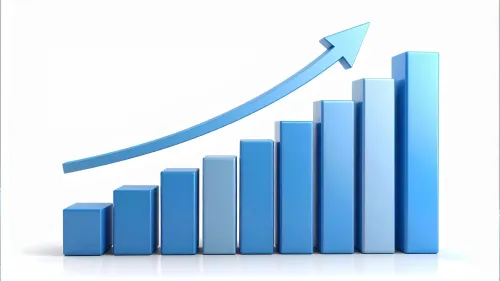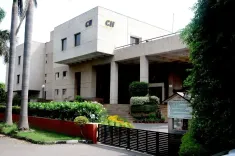BOK Maintains Interest Rate Amid Weak Won and Trump Tariffs
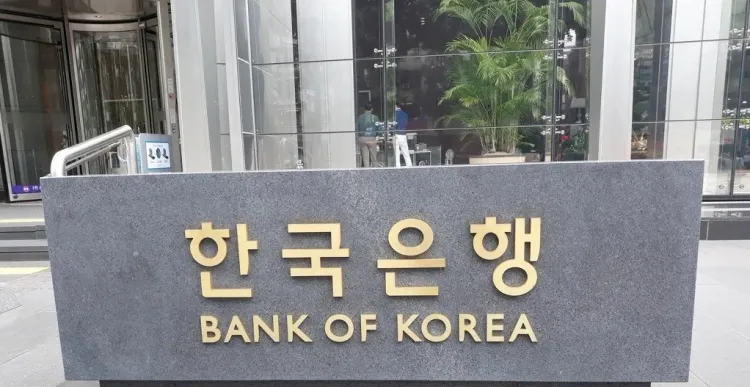
Synopsis
Key Takeaways
- BOK maintains interest rate at 2.75%.
- Decision aims to support the fragile won.
- Governor Rhee highlights economic uncertainty from U.S. tariffs.
- Further rate cuts are possible in the next three months.
- Supplementary budget proposed to aid key industries.
Seoul, April 17 (NationPress) South Korea's central bank has decided to keep its benchmark interest rate steady on Thursday to bolster the fragile currency and maintain financial stability, while adopting a careful approach amidst growing uncertainty due to the Donald Trump administration's
In a move widely anticipated by analysts, the monetary policy committee of the Bank of Korea (BOK) opted to keep its key rate at 2.75 percent during a meeting in Seoul.
This decision follows a quarter-percentage-point rate cut made at the last meeting in February, which was the third reduction since October 2024, when the BOK initiated its monetary easing cycle for the first time since August 2021, as reported by Yonhap news agency.
Regarding the tariffs imposed by Trump, BOK Governor Rhee Chang-yong remarked during a press briefing, "It feels like we have suddenly entered a dark tunnel. We are choosing to slow down and wait for improvements."
One board member expressed dissent regarding the decision to hold the rate, while all members acknowledged the need to keep the door open for further cuts over the next three months due to sluggish economic growth.
Thursday's choice highlighted the BOK's commitment to supporting the local currency, even as it balances the need for economic growth against market stability.
Due to the unpredictable tariff policies of the Trump administration, there has been an uptick in volatility in the financial and foreign exchange markets.
Earlier this month, the local currency plummeted to as low as 1,484.1 won against the U.S. dollar, the lowest it has been in approximately 16 years, following the U.S. announcement of reciprocal tariffs that included a 25 percent tariff on South Korea and a 10 percent baseline tariff on foreign imports.
However, in a surprising policy shift, the U.S. president announced a 90-day delay in implementing the reciprocal tariffs shortly after they took effect, resulting in a slight recovery of the Korean won to around 1,420 won in recent trading sessions.
Currently, the difference between the key interest rates of South Korea and the U.S. is as high as 1.75 percentage points, and experts warn that further widening of this gap could lead to additional depreciation of the Korean currency.
Federal Reserve Chair Jerome Powell has maintained a cautious approach, vowing to closely observe market conditions before making any changes to interest rates.
During a speech at the Economic Club of Chicago on Wednesday (local time), Powell cautioned that Trump's tariffs could provoke stagflation, characterized by stagnant economic growth alongside rising prices.
The BOK seems to have chosen to preserve its policy flexibility by keeping the rate steady, especially as South Korea prepares for tariff negotiations with Washington.
The won opened at 1,416.0 won on Thursday, reflecting an increase of 10.7 won from the previous session.
The BOK head warned of a significant downgrade in the economic growth outlook for this year, citing the effects of U.S. tariffs and prolonged domestic political instability following former President Yoon Suk Yeol's unexpected imposition of martial law in December.
On Tuesday, Finance Minister Choi Sang-mok proposed increasing the size of a planned supplementary budget to 12 trillion won (approximately US$8.44 billion) from the initially suggested 10 trillion won to assist crucial industry sectors.
Such a supplementary budget is projected to boost the growth rate by 0.1 percentage point this year, according to the BOK head.

